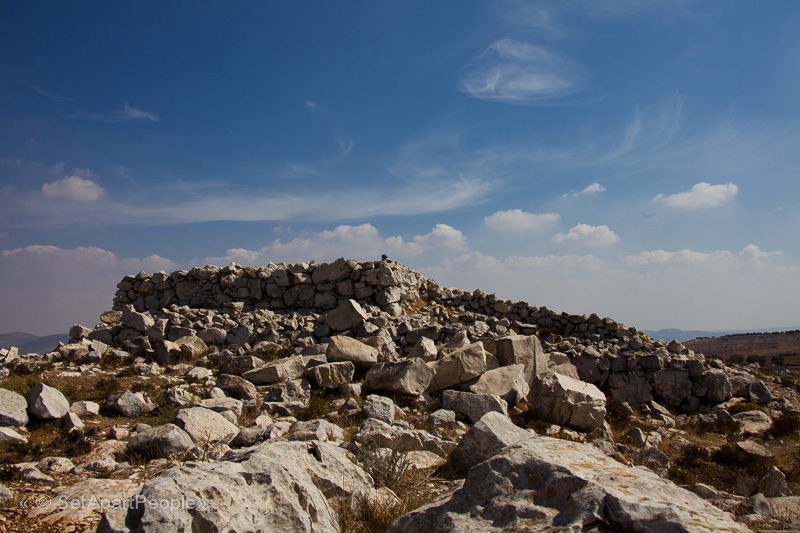Joshua’s altar on Mount Ebal (Deuteronomy 27)
Both Deuteronomy 27:1-18 and Joshua 8:30-35 describe the altar the Israelites constructed on Mount Ebal after entering Canaan. A structure discovered on Mount Ebal in 1980 (above pic) offers tantalizing parallels to the Biblical description og Joshua’s altar. Constructed of unworked stone (in the state in which they were originally found), this rectangular structure, roughly 9 m long by 7 m wide, is filled with layers of ash, animal bones, potsherds and stones. Fragments of lime plaster were discovered in the immediate vicinity (cf. Deuteronomy 27:2, 4, Joshua 8:30-31). In front of the installation a sloping wall divides two stone-paved courtyards, forming a ramp that ascends to the altar (cf. Exodus 20:26). A low stone wall encloses the entire site, covering an area of 1070 square metres. Based upon the pottery and associated finds at this open-air cult site, excavators have dated it to early Iron Age, approximately 1200 B.C. (a date significantly later than the conquest).
While it is possible that this is Joshua’s altar, a number of indicators suggest that is it not:
- The current dating of the site does not fit with Biblical chronology, which suggests an earlier, fourteenth century B.C. date for Joshua and the conquest. Late Bronze Age pottery, possibly dating to the fourteenth century B.C. was unearthed at the site, but the main phase, during which the ramped structure was built, appears definitely to date to the later Iron I period.
- Likewise, Biblical sources mention only cattle, sheep, goats, doves and pigeons as valid sacrifices. Remains of these were found, but bones of other species were present as well, especially those of fallow deer.
It is possible that the Iron Age I structure was constructed on the site of Joshua’s earlier altar. The locations of ancient sacred sites tended to persist over time. Although the general tradition of the site’s holiness may have been preserved, worship practices may have become heterodox (nontraditional or deviant) if foreign elements had at some point been introduced (such as offering animals other than those prescribed in the Biblical text.
